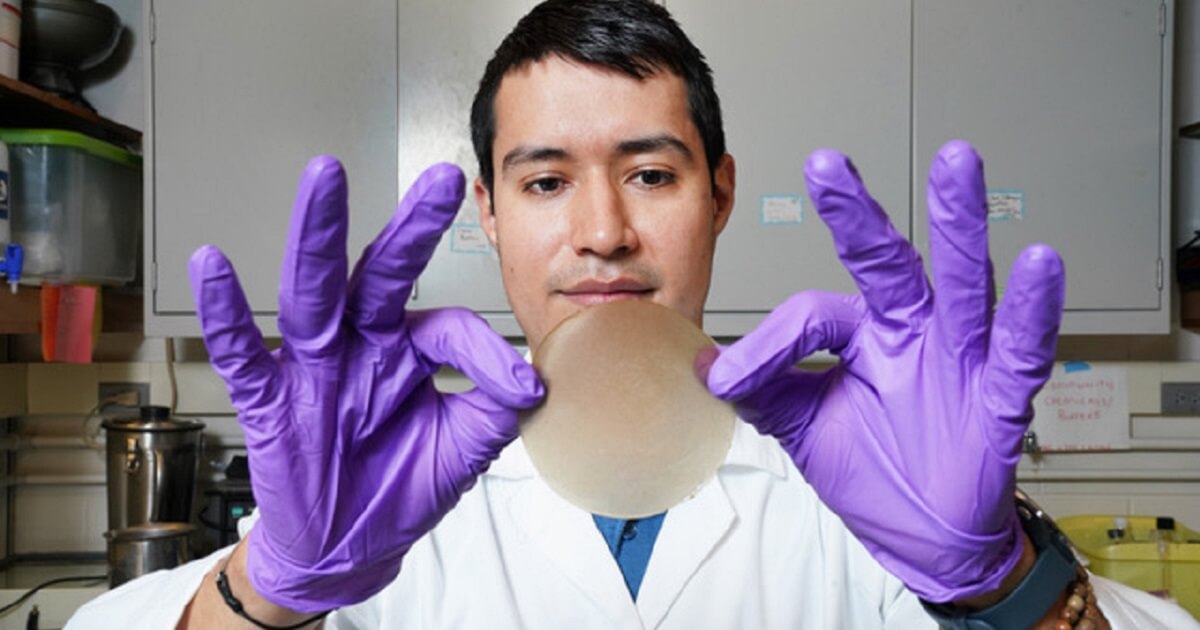Graduate Student Spotlight: Uriel Urbizo Reyes
"It’s exciting to know that there are food components that can actually serve as nutraceuticals. I’m really passionate about this growing aspect of the food science field.”
— Uriel Urbizo Reyes, PhD student, Department of Food Science
 Uriel Urbizo Reyes (Photo by Tom Campbell)
Uriel Urbizo Reyes (Photo by Tom Campbell) The Student
Uriel Urbizo Reyes credits his parents with helping him achieve the ambitious goals he has set for himself, including an excellent education. He was accepted for undergraduate study at the Zamorano Pan-American Agricultural School in his home city of Tegucigalpa, Honduras, but remained unsure of his academic focus. During his last few days of high school, he was reviewing the Zamorano catalog and spotted “food science and technology.” The major combined several disciplines Urbizo liked, notably engineering and chemistry. “I started to read more about it,” he recalls. “Giving added value to agricultural goods was something that touched me because in Honduras, the economy is mostly based on agriculture, and I wanted to help my country.” As a college senior, Urbizo completed his required internship in the Purdue lab of Andrea Liceaga, associate professor of food science. “I am naturally curious, and soon as I became aware of the complexity of proteins, I knew I was going to specialize in that topic,” he says. He returned to Zamorano and 20 days after graduation, came back to Purdue at Liceaga’s invitation for a master’s degree, which he completed in December 2019. Still under her advisorship, he began doctoral studies the next semester. “Purdue is well recognized as a world leader in food science, and why I chose to come here,” he says. Liceaga, he adds, “always takes into consideration my proposed ideas.”
The Research
“Currently I’m working with plant-based protein,” Urbizo says. “We focus on alternative and sustainable protein sources, and I work with canary seed, which is common in Latin America and starting to grow in popularity.” The tiny, yellow seed’s composition — roughly 20% protein, 60% starch, and 8% fiber — and its potential health benefits make it especially interesting, Urbizo says. He specifically studies the interaction of proteins with their metabolic targets to better understand the seed’s possible anti-diabetic properties and potential to relieve pain, decrease blood glucose, lower hypertension and reduce inflammation. “It’s not intended to be a drug to relieve illness, but it may alleviate certain conditions and be a great health benefit to people, especially in underdeveloped areas in Latin America,” he explains.
Opportunities
“The conferences that I’ve been able to attend opened my eyes to the technologies that are out there,” Urbizo says. He also cites the wide range of disciplines within food science with showing him the value of collaboration, and he has been able to both help and learn from students as a teaching assistant. “It’s an enriching experience to be in such a multicultural place with so many different people,” he says.
Future Plans
Urbizo expects to complete his degree later this year and is open to gaining some experience in industry, either in plant-based foods or nutraceuticals. “I want to be there a couple of years and then may return to my country,” he says. “Industry experience will help me decide my future.” Away from the lab, Urbizo is active in his church: “A close relationship with God has allowed me to undertake challenges and stress,” he says. In his leisure time, he enjoys mountain biking and hiking in the upper Midwest.






